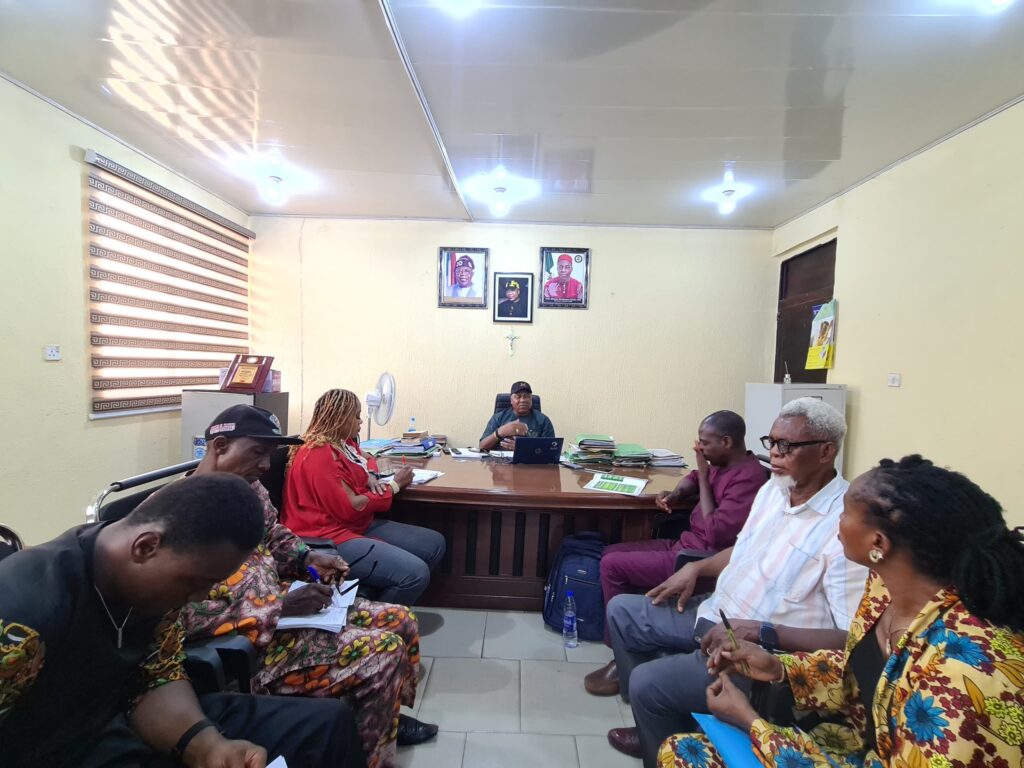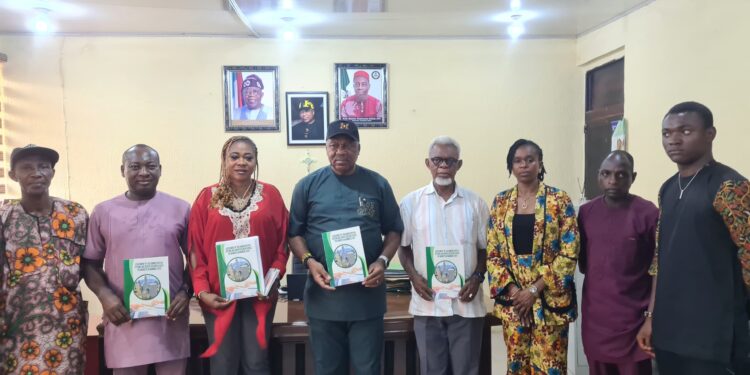Chinedum Treasure
Anambra state government has expressed confidence that the ongoing market stall digitization project would not only address recurring shop ownership conflicts, but tackle tax evasion among traders.
Special Adviser to the Governor on Markets, Chief Evaristus Uba stated this when he received members of TJ&GP, led by Mrs Ugochi Ehiahuruike, Executive Director, Social and Integral Development Centre, SIDEC, the organization implementing the Tax for Service project in collaboration with Civil Society Legislative Advocacy Centre (CISLAC), with funding support from Oxfam Nigeria.

He said the digitization initiative was in the best interest of traders, as it would ensure seamless financial interactions with government.
He said, “We want to revalidate ownership and digitize shops in the state. We would have each shop captured in the state database with the details of the owner, which will enhance smooth payment of levies attached to the shops.
“Tax collection is very difficult, even in sane climes. Nobody likes paying tax. That’s why we’re structuring and digitizing the markets and digitize so application of technology will be seamless.
“Interestingly, majority of the traders are educated and can make online transactions. We used Ogbaru main markets as pilot ahead of plans to roll out in the entire markets.
“Part of the digitization includes naming all the shops, tagging the shops to individuals so at the beginning of each year, sms or email would be sent to shop owners.

“Unfortunately, one of our major challenges is majority of the traders don’t want to be captured because that’s one primary way of evading tax. Imagine a market with a population over 1000 traders will claim they are 500.
“For example, Onitsha main market is originally designed to have 13,000 shops, but the number of traders there now is over 40,000. Imagine 5 traders sharing one shop, with what they call attachments.
“These are traders that refuse to be captured so they can evade tax compliance. Yet, they want government to provide facilities for them. However, we’ll try to incorporate your recommendations in our plans.”
Earlier, Executive Director SIDEC, host of the Tax Justice and Governance Platform, Ugochi Ehiahuruike, said the Tax for Service project was meant to complement government efforts towards achieving increased tax compliance by taxable residents of the state through aggressive public enlightenment.
“The project is also to make government accountable in utilizing the revenue collected from the citizens. When government applies the ones collected properly and people see where their money is providing services for public good, they will be encouraged to do more.
“It is the best way to motivate people to comply voluntarily. Such will also save government the huge amount of money they spend on enforcement.
“The reason we are here is to also to share findings of the research we’ve done in 21 selected markets across the three senatorial zones of the state. We found that many traders are still not happy that government is not investing the money collected from them in addressing their needs in the markets.
“If government provides basic amenities needed in those markets, they will be encouraged to pay their taxes and levies,” she said.






